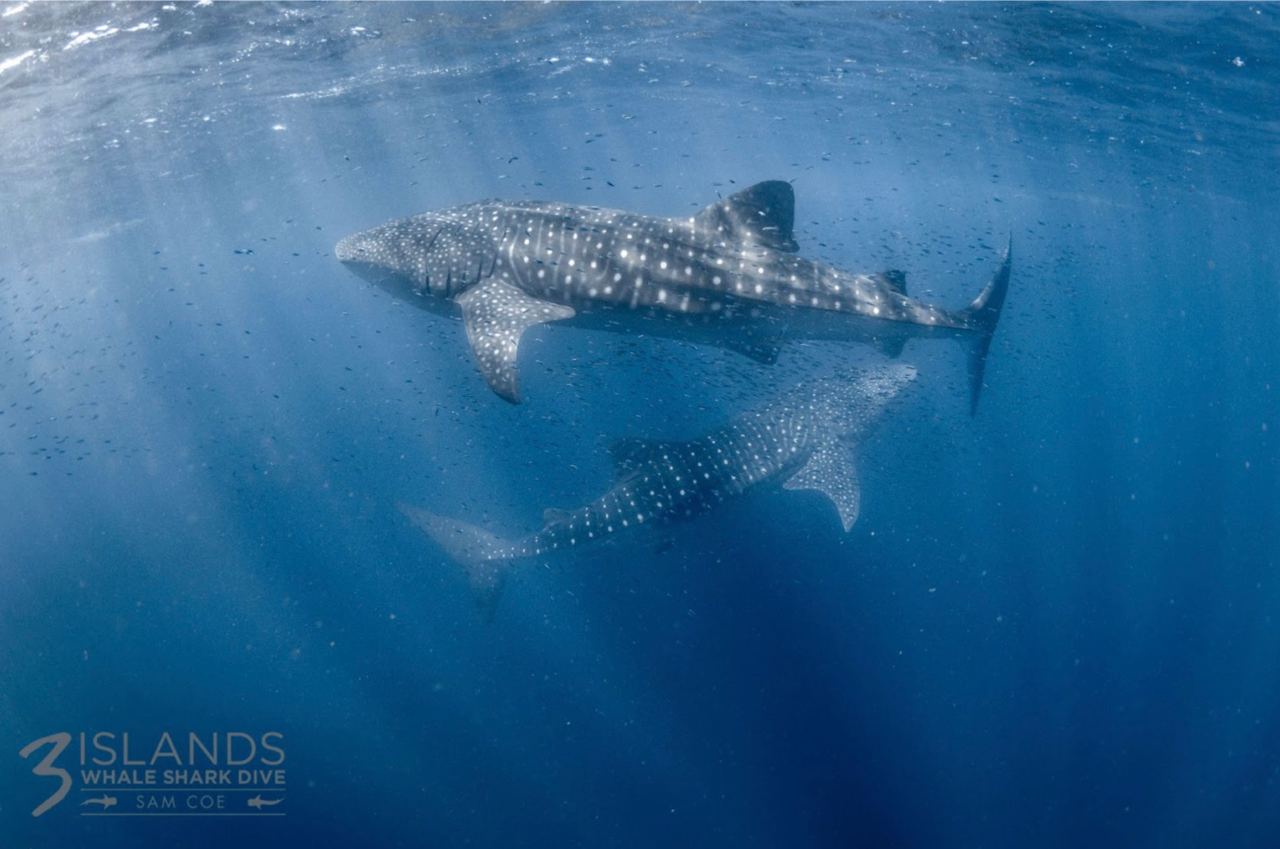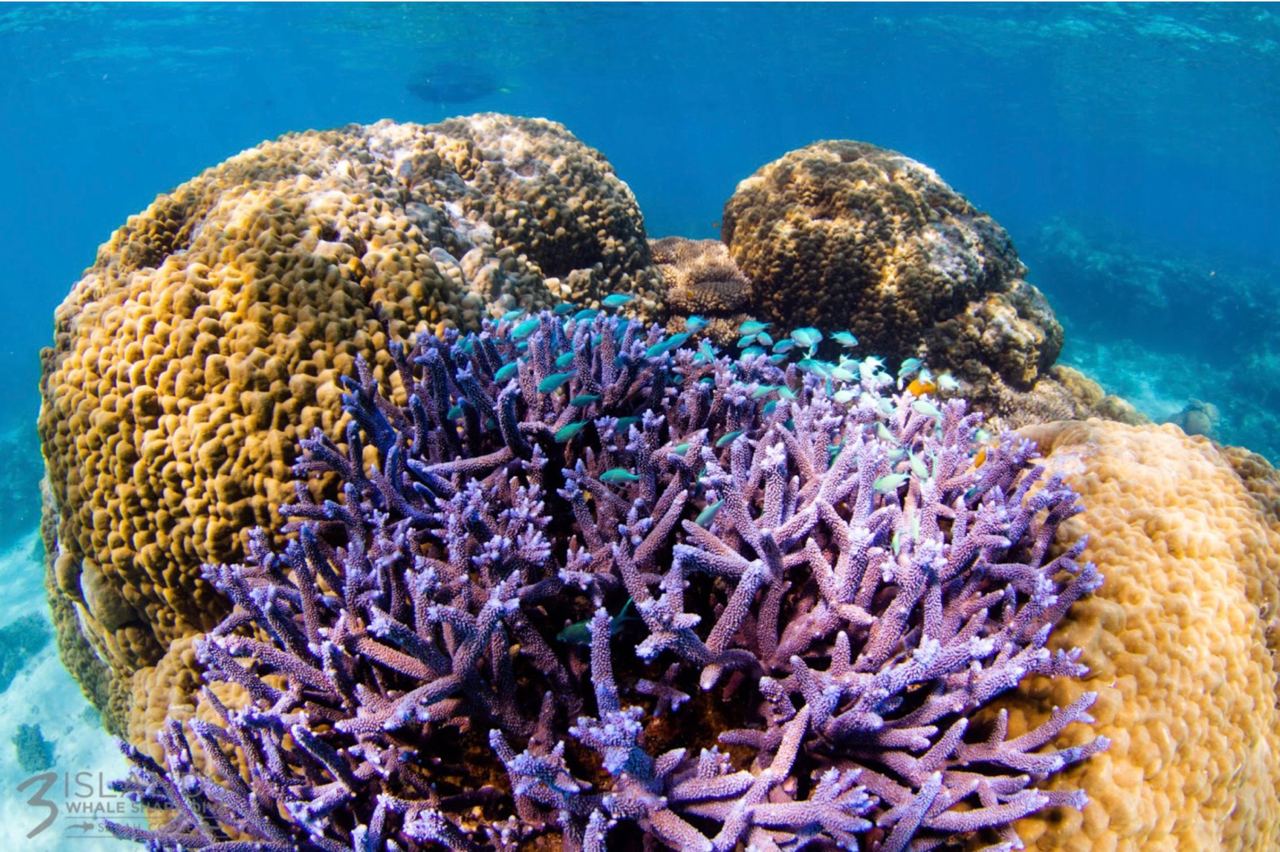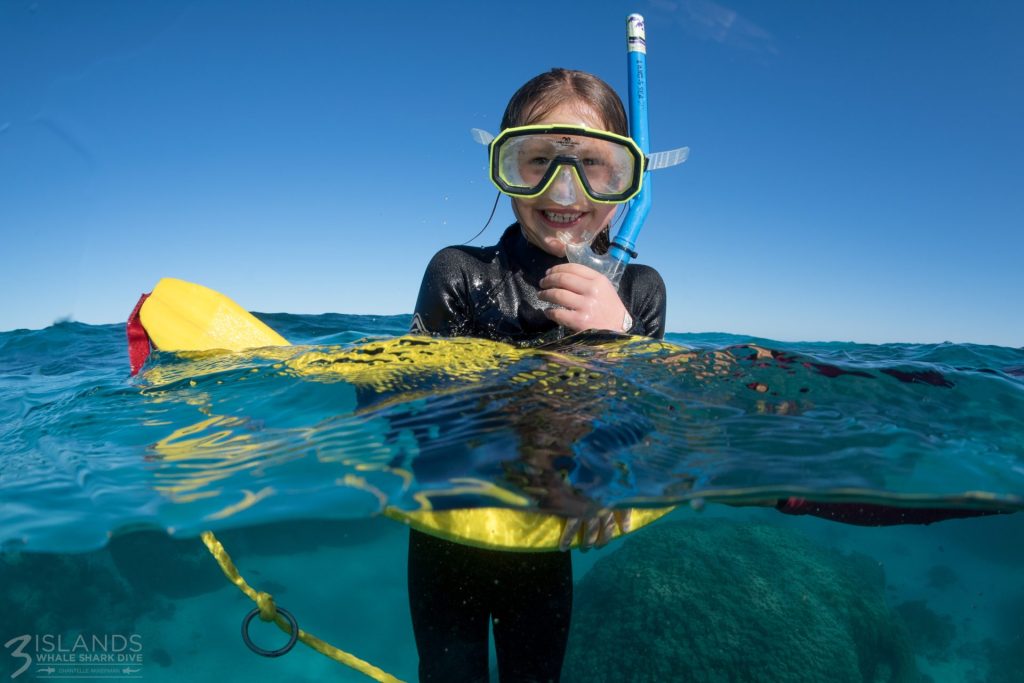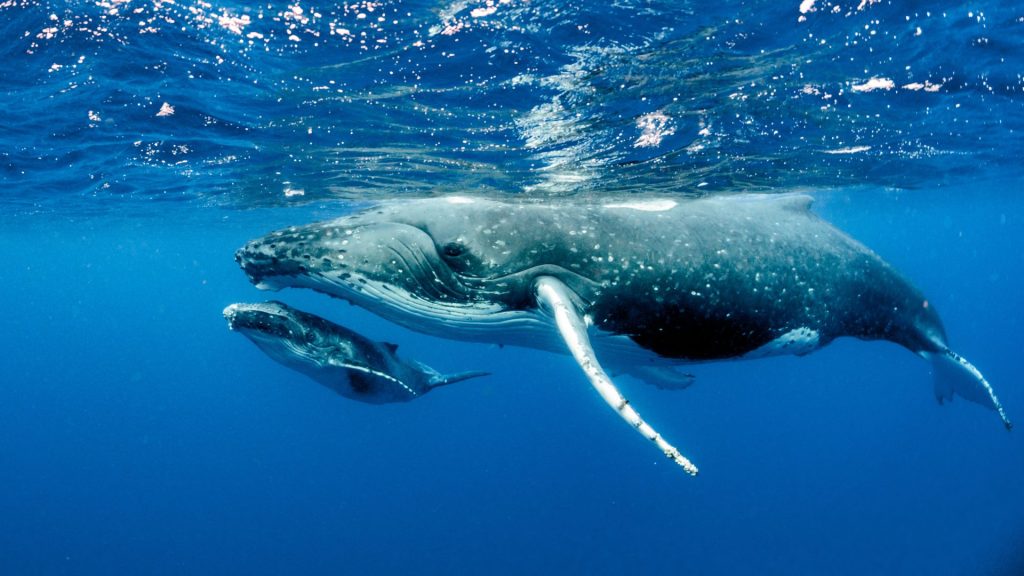Whale sharks present a fascinating mystery that intrigues marine biologists and ocean lovers alike. These giant fish, known for their peaceful nature and filter-feeding habits, navigate the warm seas with a grace that belies their immense size

Table of Content
However, for all their visibility and size, the details of their breeding habits remain largely uncovered. Few aspects of marine life are as shrouded in mystery as the reproduction of whale sharks, with reports of only a handful of people ever sighting this phenomenon.
This lack of widespread knowledge sparks a natural curiosity and underscores the importance of research in this area. In this blog, we’ll dive into what we do know about whale shark mating behaviours, aiming to educate you on uncommon knowledge and highlight the importance of preserving these majestic creatures.
What is Known About Whale Shark Reproduction?
Whale sharks engage in internal fertilisation, a reproductive strategy where mating occurs, and embryos develop inside the mother. This contracts with external fertilisation seen in many fish species, where eggs are fertilised outside the female’s body. Specifics on how whale sharks mate remain largely unknown due to this elusive nature and the depths at which they live, but it involves the male transferring sperm to the female to fertilise the eggs internally.
As for birth, whale sharks are ovoviviparous, meaning they give live birth. The embryos develop inside the mother in a manner that initially relies on a yolk sac for nutrition. Unlike mammals, there’s no placental connection; instead, the embryos are nourished by the yolk sac and later by secretions within the mother’s body. This process culminates in the live birth of fully formed, free-swimming pups.
How Many Pups Do Whale Sharks Have?
Research highlighted by a pregnant female whale shark found near Taiwan revealed she was carrying approximately 300 embryos. This discovery emphasises the extraordinary reproductive capabilities of whale sharks, where embryos develop inside the mother, supported initially by a yolk sac, before they’re born fully formed and ready to swim independently.
How Big are Baby Whale Sharks?
Female whale sharks are capable of producing hundreds of eggs, but these eggs aren’t hatched all at once. It’s understood that females can retain sperm from a single mating event, enabling them to fertilise eggs gradually over a period of time. This staggered birthing process results in pups that are significantly smaller at birth, measuring between 40 to 70 cm, which contracts sharply with their adult lengths of 5.5 to 10 metres. This reproductive behaviour is one of the less commonly known facts about the early life of whale sharks, the largest fish species in the ocean.
Whale Shark Breeding Grounds

The breeding grounds of whale sharks remain largely mysterious, but warm, tropical waters are believed to be key for their reproductive processes.
While there is no direct evidence linking whale shark breeding activities to Ningaloo Reef, the annual congregations of whale sharks in this area following coral spawning and plankton blooms suggest a significant ecological relationship. These events create a rich feeding ground that attracts whale sharks, making it plausible that such nutrient-rich waters could also play a role in their reproductive cycle.
The presence of whale sharks in Ningaloo Reef, therefore, might not only be for feeding but could potentially indicate it as a vital area for mating or giving birth, offering a safer environment for their young. This underscores the importance of ongoing research and conservation efforts in these regions to protect the habitats critical to the survival and health of whale sharks.
The Challenges of Whale Shark Reproduction Research
Studying whale shark reproduction presents significant challenges, primarily due to their elusive nature and the vast, open-ocean habitats they frequent. Researchers struggle with limited direct observations of mating or birthing, as these events occur deep underwater or in remote areas far from human observation.
However, the adoption of innovative research techniques, such as the utilisation of biotelemetry devices, offers a glimpse of hope. These ‘fitbit-like’ tools for sharks have begun to shed light on their movement and behaviour, providing valuable insights that could help navigate the complexities of researching the reproductive life of the world’s largest fish.
Experience the Majestic Migration of Whale Sharks at Ningaloo Reef

Ningaloo Reef, a biodiverse marine paradise, plays a pivotal role in the annual migration of whale sharks, attracting these gentle giants to its waters. This remarkable event offers a unique glimpse into the natural wonder of whale shark migration and possibly their breeding behaviours, showcasing Ningaloo Reef as a crucial habitat for these magnificent creatures.
Embrace the opportunity to witness the awe-inspiring migration of whale sharks at Ningaloo Reef with Three Islands Whale Shark Dive. Not only does participating in a guided tour offer a chance to swim with these gentle giants up close, but it also supports conservation efforts aimed at preserving their natural habitat.
Availability on our whale shark tours is limited, so book today to secure your spot before the season’s tours are fully booked!
More...
Fun Humpback Whale Facts For Kids
Fun Humpback Whale Facts For Kids Humpback whales are among the most fascinating creatures in the ocean, captivating anyone lucky enough to spot them! Whether your family is planning a trip to the coast or simply curious about marine life, these fun humpback whale facts for kids will spark curiosity and wonder. Let’s dive into…
The Lifecycle of a Humpback Whale
The lifecycle of a humpback whale is one of the most amazing journeys on the planet. From their birth in warm tropical waters to their long migrations and incredible feeding techniques, humpbacks are constantly on the move, playing a vital role in ocean health along the way. At Three Islands Whale Shark Dive, we love…




